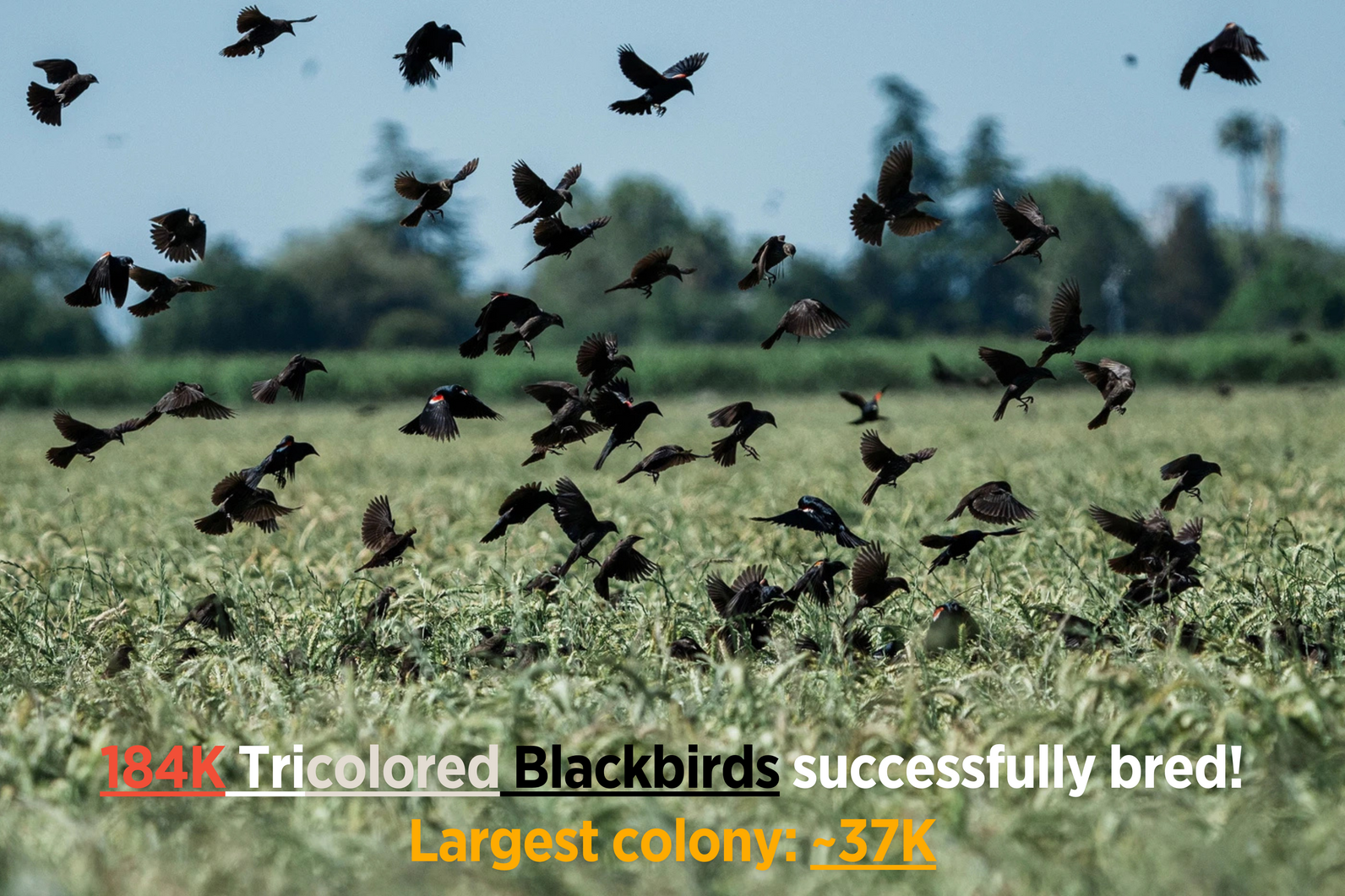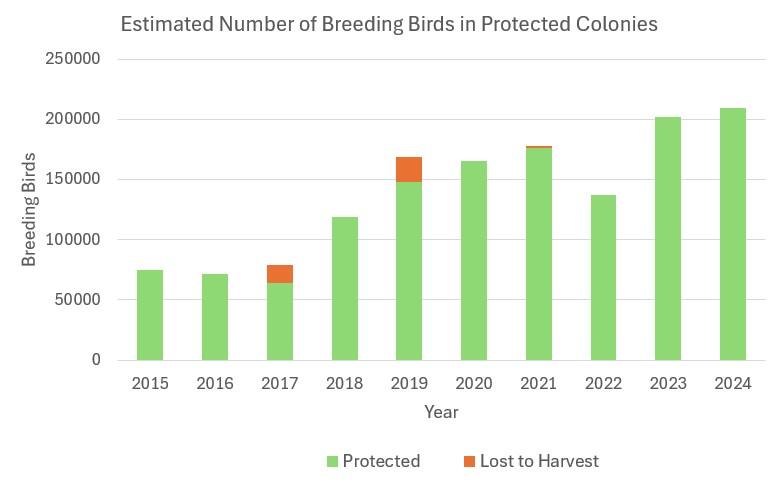Tricolored Blackbirds are soaring to new heights! In 2024, these iconic birds, listed as threatened under the California Endangered Species Act, made incredible gains thanks to the power of partnership and dedication. One standout success story unfolded in eastern Merced County, where a colony of “Trikes” grew from 10,000 birds in March to an astonishing 30,000 as the season progressed.
This booming colony showcased the resilience of the species and the importance of collaboration. With asynchronous nesting—where eggs and chicks develop at different stages rather than all hatching at once—the colony required extended protection, delaying the farmer’s planting schedule. But that cooperation paid off, enabling an extraordinary number of fledglings to take flight and bolstering the population of this threatened species.
This is just one of many achievements of the Regional Conservation Partnership Program (RCPP), now celebrating its 10th year. By bringing together state and federal agencies, conservationists, and the agricultural community, the program has fostered a steady rise in Tricolored Blackbird populations in the San Joaquin Valley—from 75,000 in 2015 to a remarkable 209,000 in 2024.

2024 By the Numbers:
-
16 colonies found and protected on private land.
-
13 colonies successfully produced young.
-
3 colonies were impacted by weather, leading to early abandonment.
-
184,000 birds successfully bred (209,000 birds protected, including failed colonies).
-
Largest colony: ~37,500 adult birds.
-
Average colony size: 14,000 adult birds.

Long-Term Impact:
-
Over 9 years, 97% of breeding birds have been saved, with no colonies lost to harvest in 7 out of 9 years.
-
Collaborative efforts with the dairy community, supported by incentive payments, have helped reduce the impact of birds on operations while ensuring chicks fledge successfully.
-
These efforts have led to a rebound in Tricolored Blackbird populations, a significant win for conservation.
The success of 2024 underscores the power of partnerships in balancing the needs of wildlife and agriculture—we deeply appreciate the cooperation of farmers who have worked alongside us to help protect Tricolored Blackbirds! Your willingness to work collaboratively, even when it means adjusting your schedules, has made all the difference for these birds.



